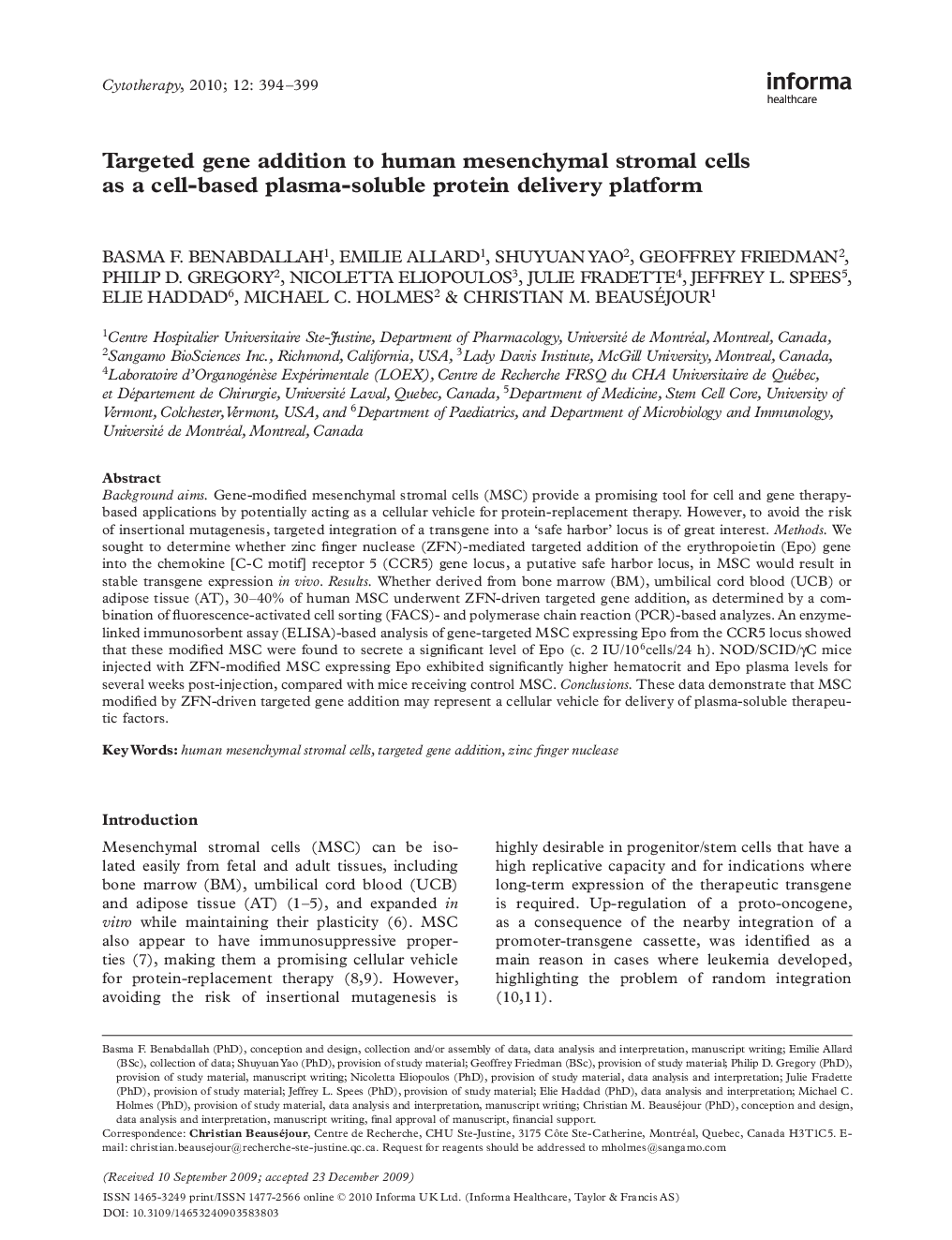| Article ID | Journal | Published Year | Pages | File Type |
|---|---|---|---|---|
| 2172080 | Cytotherapy | 2010 | 6 Pages |
Background aimsGene-modified mesenchymal stromal cells (MSC) provide a promising tool for cell and gene therapy-based applications by potentially acting as a cellular vehicle for protein-replacement therapy. However, to avoid the risk of insertional mutagenesis, targeted integration of a transgene into a ‘safe harbor’ locus is of great interest.MethodsWe sought to determine whether zinc finger nuclease (ZFN)-mediated targeted addition of the erythropoietin (Epo) gene into the chemokine [C-C motif] receptor 5 (CCR5) gene locus, a putative safe harbor locus, in MSC would result in stable transgene expression in vivo.ResultsWhether derived from bone marrow (BM), umbilical cord blood (UCB) or adipose tissue (AT), 30–40% of human MSC underwent ZFN-driven targeted gene addition, as determined by a combination of fluorescence-activated cell sorting (FACS)- and polymerase chain reaction (PCR)-based analyzes. An enzyme-linked immunosorbent assay (ELISA)-based analysis of gene-targeted MSC expressing Epo from the CCR5 locus showed that these modified MSC were found to secrete a significant level of Epo (c. 2 IU/106cells/24 h). NOD/SCID/γC mice injected with ZFN-modified MSC expressing Epo exhibited significantly higher hematocrit and Epo plasma levels for several weeks post-injection, compared with mice receiving control MSC.ConclusionsThese data demonstrate that MSC modified by ZFN-driven targeted gene addition may represent a cellular vehicle for delivery of plasma-soluble therapeutic factors.
